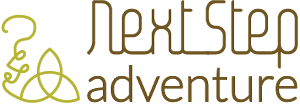Learn through Service
Service learning is more than picking up litter and cutting down trees. Kids and adults can have fun and learn a lot from doing such activities together. But to have a bigger impact, service learning must be well planned and provide opportunities for reflection and feedback.
Experiences with the best outcomes include youth voice and choice, varied processing opportunities and reflection that informs future planning. Here are some resources to help you get started.
Do you have a group of youth that might be interested in creating social change, but isn’t sure?
- Teachers-Going Green offers online service learning strategies and facilitator guides for Middle and High School youth and adult leaders who have an idea for service projects. They’re free and easy to use.
- Community! Youth Concepts is Lead Agency for Global Youth Service Day. GYSD has a lot of resources for planning a project-–an interactive project guide and grant opportunities.
- The Iowa Outdoor Youth Summit was held at Springbrook Conservation Center on April 10 and 11. Groups from across Iowa put together both local and state plans for addressing “Nature Deficit Disorder.”
- We used the Outdoor Bill of Rights Survey to plan the Summit; you can take it here, and see the results here.
- The National Youth Leadership Council (NYLC) has standards for quality practice for service learning. The NYLC sponsors an annual conference. The Whyld Girls attended in 2008 and 2009.
Well, that’s a start. It doesn’t take much surfing to find lots of inspiration and help for getting involved in service learning; check it out!






